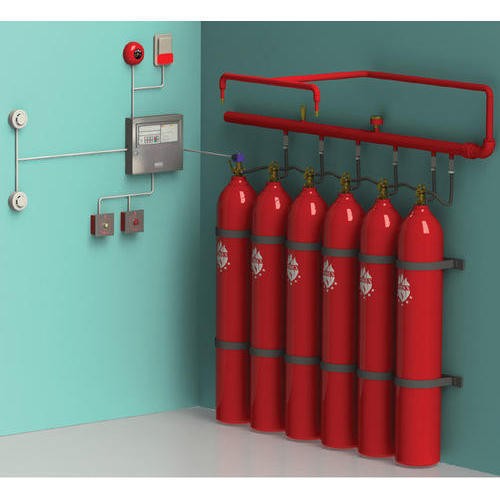The sea can be treacherous, and there are stories and movies aplenty about disasters on water. In reality, there’s probably nothing more terrifying than the prospect of fire at sea. It doesn’t matter if your boat is ten or ninety feet long; every boat needs a fire suppression system because marine fire protection is an absolute must.
Mission Critical
Your boat should have fire and smoke detectors, fire alarms, and at least one appropriate portable extinguisher — if not a dedicated marine fire suppression “fixed system.” Fire on a boat is a uniquely desperate circumstance.
Preventive Fire has a lot of experience with these systems and other, similar mission-critical applications (such as commercial spray booths and commercial kitchen fire systems), so we know what we’re talking about when we say your marine fire suppression system absolutely must work when you need it to.
Fire Suppression for Smaller Boats
For any boat under about 70 or 80 feet long, fire suppression tools are relatively easy to install and maintain. For even the largest in this class, a marine fire suppression system won’t be custom-built into the vessel. Instead, it will be custom spec’d by the manufacturer for the size of your engine compartment plus about 30%.
These fixed systems are kind of like kits that come in various sizes. Which one you need depends on what you’re installing it into.
There was a time when these fixed systems used either halon or chlorofluorocarbon gas, but times have changed, certain things have become clear, and we now need fire suppression systems that work without damaging the environment.
Newer systems, therefore, use fluoroketone firefighting agents such as Novec 1230 (a 3M product), which breaks down in the atmosphere in a matter of days, not years. These gasses are heavier than air, so they go right to the base of the fire, wherever it’s hiding, and get to work snuffing it out.
Portables
Naturally, you’re going to want portable fire extinguishers on board. The best thing you can do is put any fire out quickly, and depending on where it occurs, there is a right and wrong tool for the job.
Below Decks
Use a clean agent extinguisher below decks, mainly because these gasses aren’t limited by obstructions and tight spaces like foam and powder are. A clean agent-dispersing portable is great for enclosed spaces behind electrical panels, for instance, or for when you smell smoke but can’t see flame because it’s behind a bulkhead.
Above Decks
Since foam and ABC powder extinguishers disperse chemicals that stick to burning material, they are a must-have for any part of the boat that is exposed to the air and weather. Most ABC extinguishers will work just fine for fires you may encounter on the water, at least when you’re above decks.
Fixed Systems and the Importance of Maintenance
As mentioned earlier, any vessel smaller than about 70 to 80 feet won’t have a truly custom-built fixed system. Those are usually too cost-prohibitive on all but the largest yachts, which will need a fixed system with lots of plumbing and multiple nozzles, sensors, and actuators.
No matter how complex or simple your boat’s fire suppression system is, though, it still needs to be professionally inspected at regular intervals.
Even the cheapest disposable portable fire extinguisher needs to be regularly inspected too, especially if its moving parts are not plastic but metal.
A pro won’t just check your fire system’s gauges; they’ll weigh each canister to ensure the gauges are being honest. They’ll also make sure pressure switches and temperature sensors are doing what they’re supposed to do. If your system has a manual activation cable, they will ensure it’s not binding or rusted.
The last thing you want to see on your boat is a fire you can’t do anything about.

